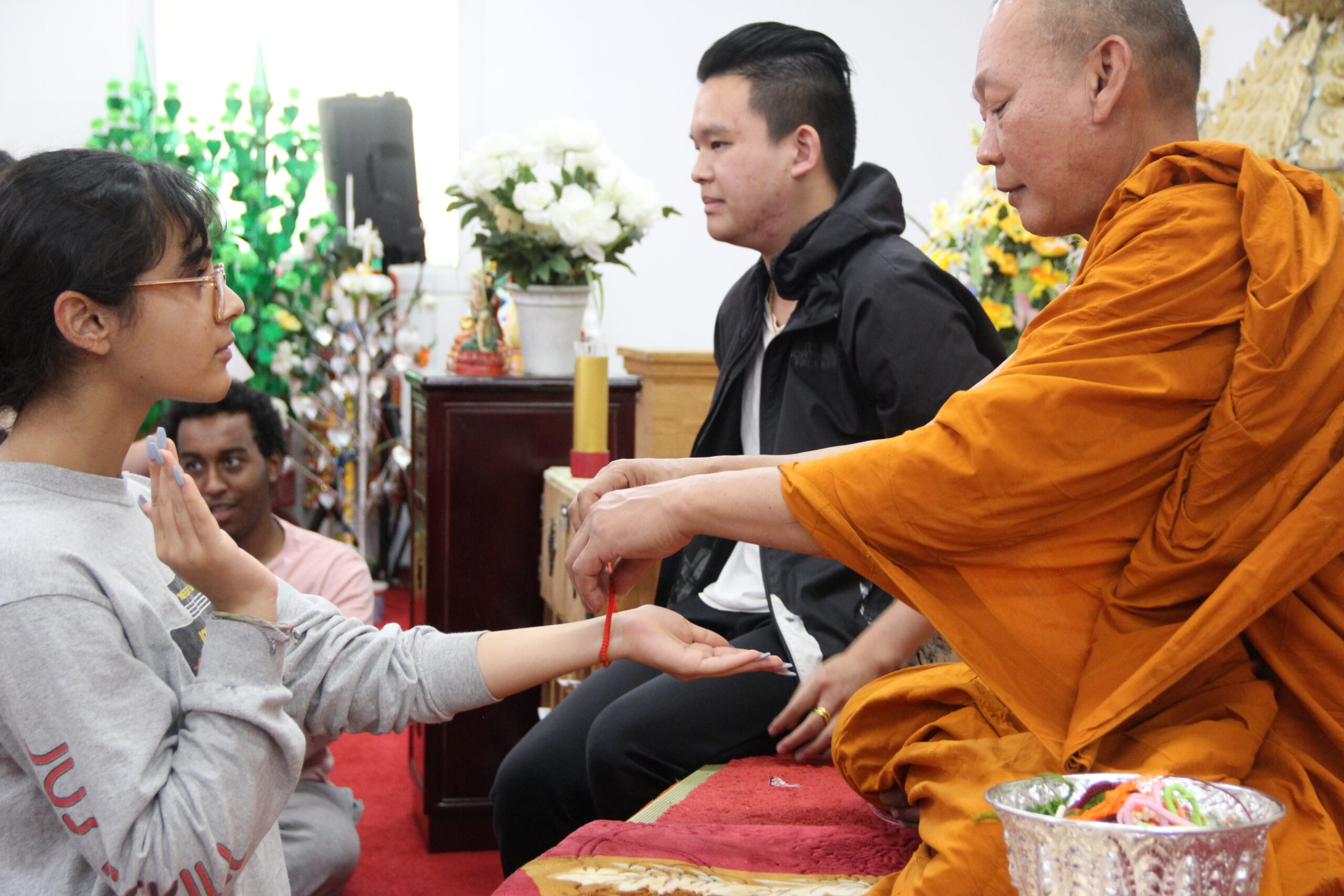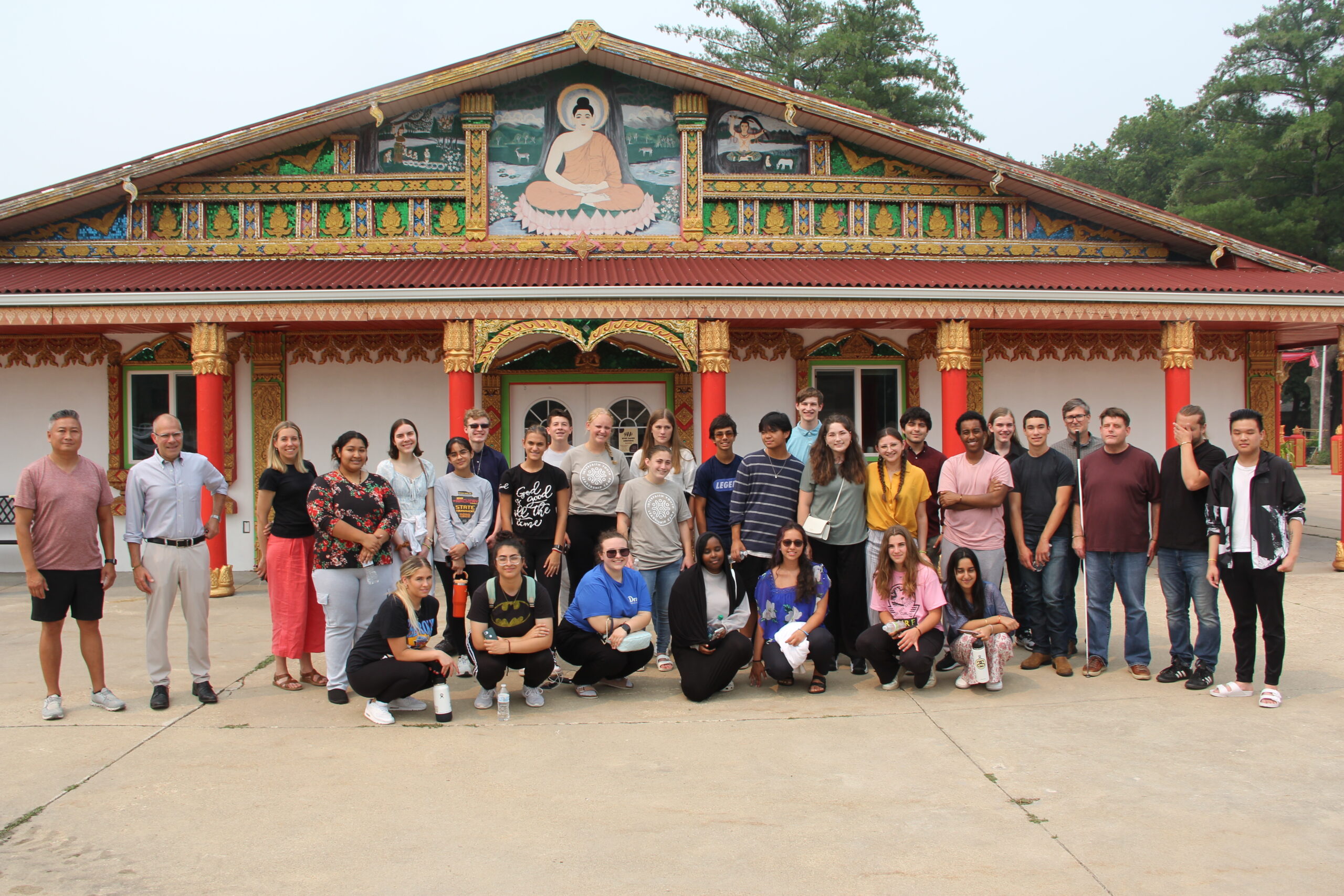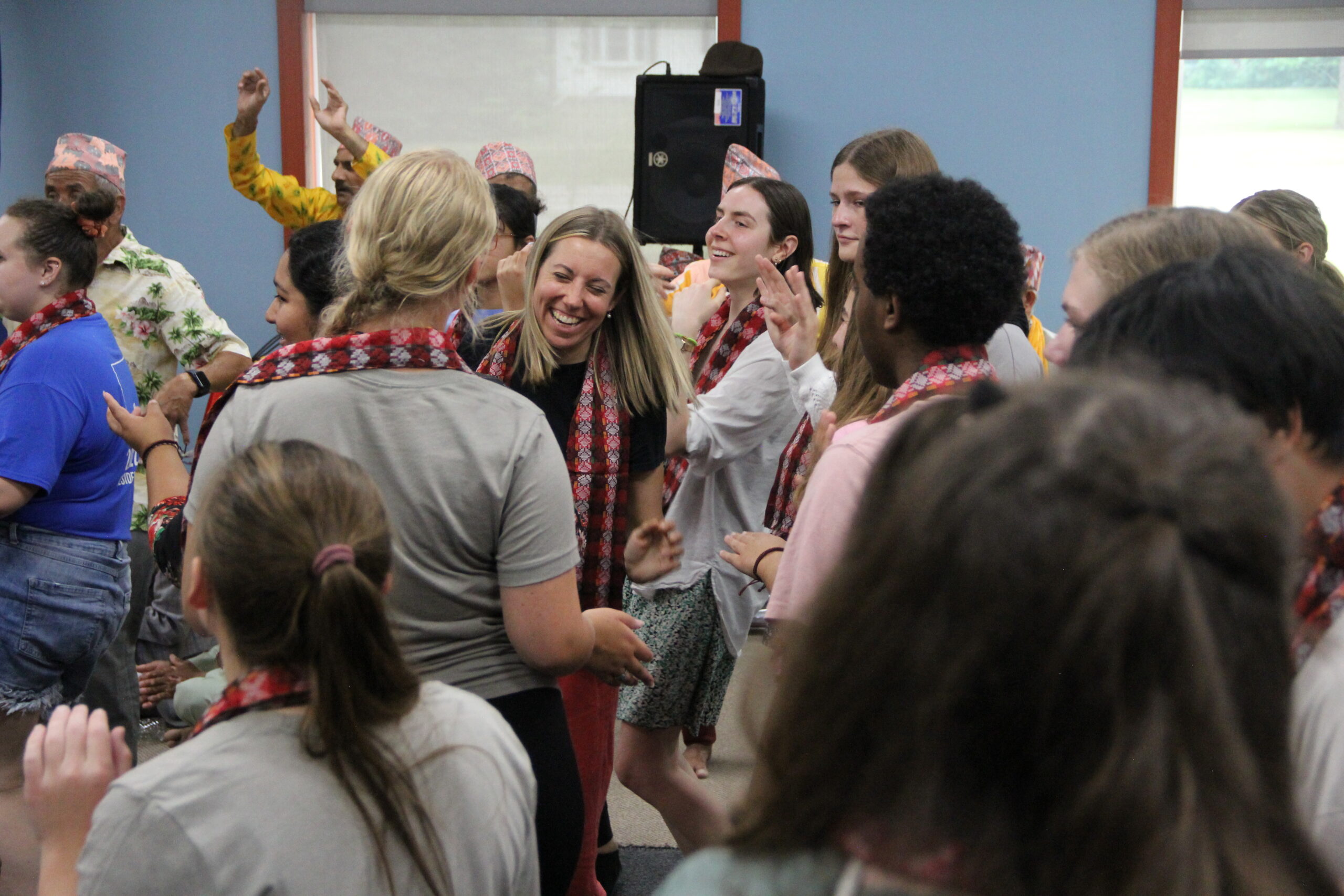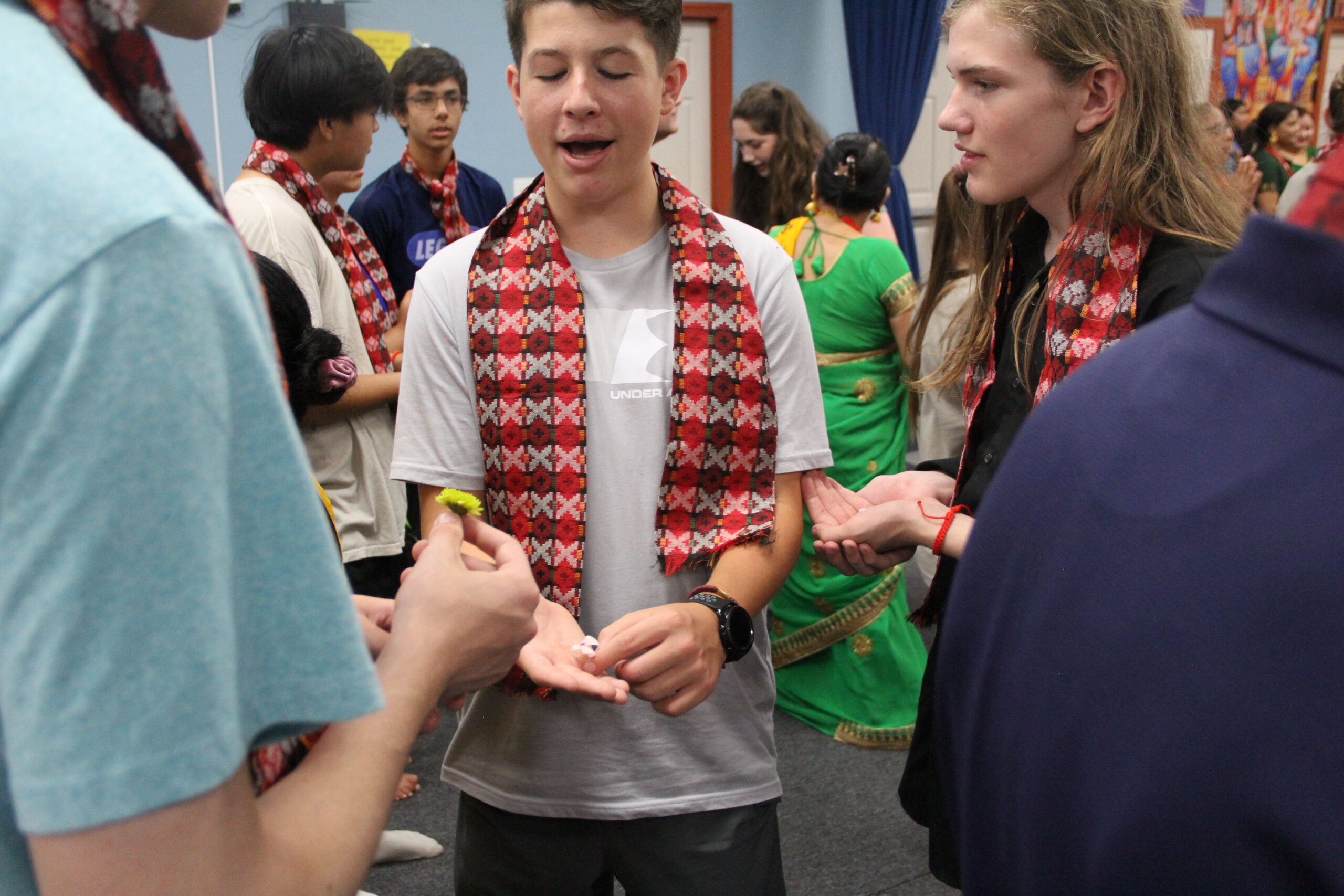Turning interfaith engagement Into understanding and action
As you walk through the doors to Temple B’nai Jeshurun, immediately you are greeted by a table of literature on local charity resources, a table of food donation collections, and a bright red barrel adorning the classic DMARC Red Barrel stop sign – “Help STOP Hunger in our city”. The Jewish reformed synagogue is celebrating its 150-year anniversary this year and each month is choosing to select a different food item to collect donations of for the Food Pantry Network.
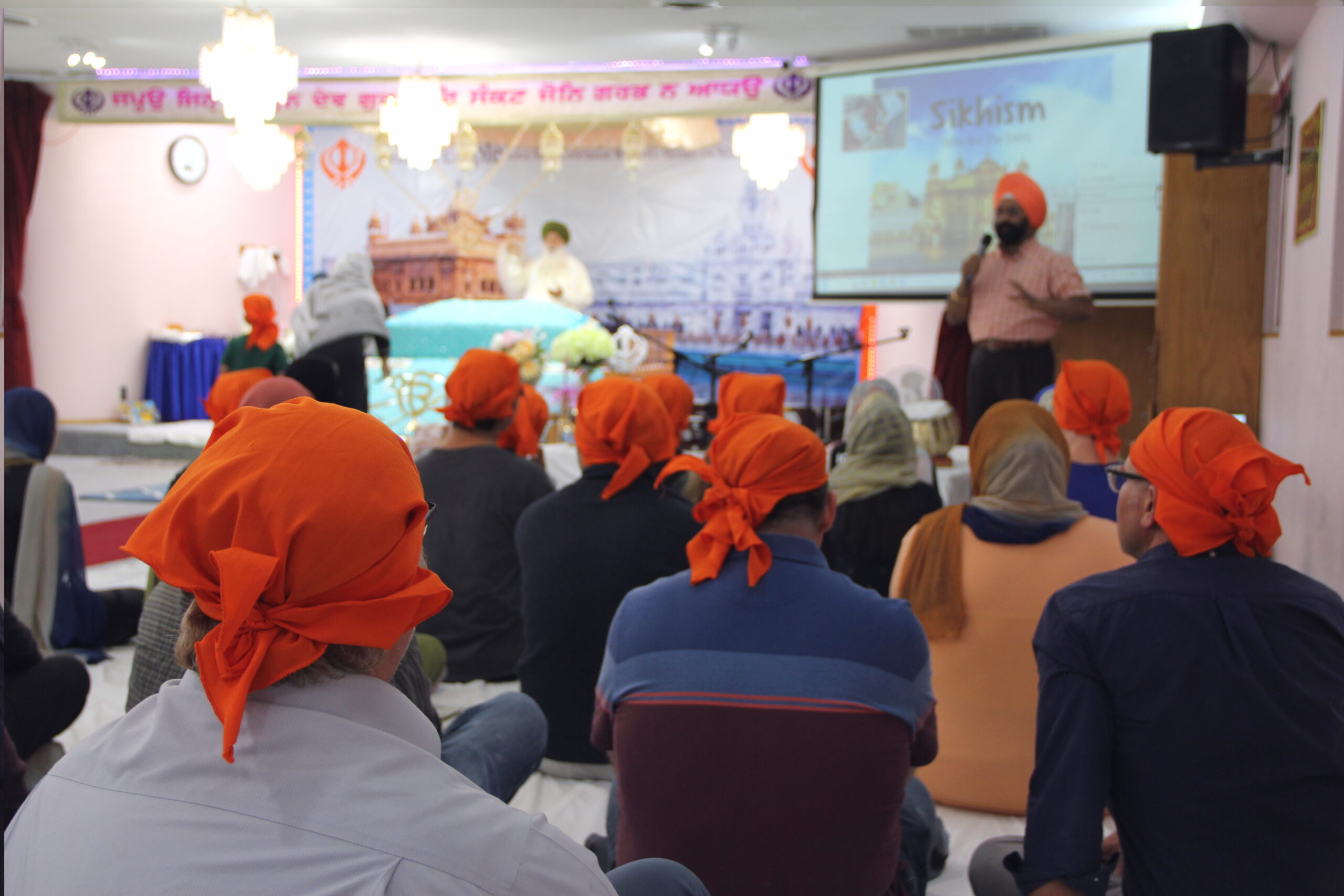
For Rabbi Neal Schuster this idea of helping those in need is simple and constant in their congregation. Like any good Rabbi, he has a passage from the Hebrew Bible in mind (Deuteronomy 14:4-11) that reflects that “… do not harden your heart and shut your hand against your needy kin. Rather, you must open your hand and lend whatever is sufficient to meet the need.”
“We want the world just to work and for it to be fixed – that’s not how the world works. It’s more like tending a garden than solving an equation,” Said Schuster. “Meet the needs of now, but don’t have the hubris or the foolishness to think that you’re solving it once and for all. Be prepared to do it on an ongoing basis.”
This is a thread that runs through so many of DMARC’s faith community partners here in Des Moines and one that has made DMARC such a special place for decades. The ongoing relationship between DMARC and the broader Des Moines faith community showcases that when we work together, we are stronger than the sum of our parts.
AN INTERFAITH TRADITION
DMARC has changed in significant ways over the past 70 years, but its mission of meeting basic human needs remains. While the DMARC name didn’t become official until 1972, conversations among interfaith leaders helped facilitate the creation of the Homes of Oakridge Housing Project (now Oakridge Neighborhood Services), on-going Tour of Faiths events, and dialogues around segregation and housing.
In May 1976, DMARC formed the “Emergency Food Pantry” program in the basement of the “Kirkside” house owned by Central Presbyterian Church. Through the decades our faith community partners have helped the network adapt to meet the present need, whether it was gas crisis of the 1980’s, to the flood of 1993, to the Great Recession, and most recently, the COVID-19 pandemic.
“We firmly believe that if you can bring people together you can do so much good,” said Sarah Trone Garriott, Coordinator of Interfaith Engagement at DMARC. “Interfaith is such an important part of what we do because we know that there is just so much opportunity to help our neighbors. Everybody understands that food is something that brings people together – across cultures, across religions.”
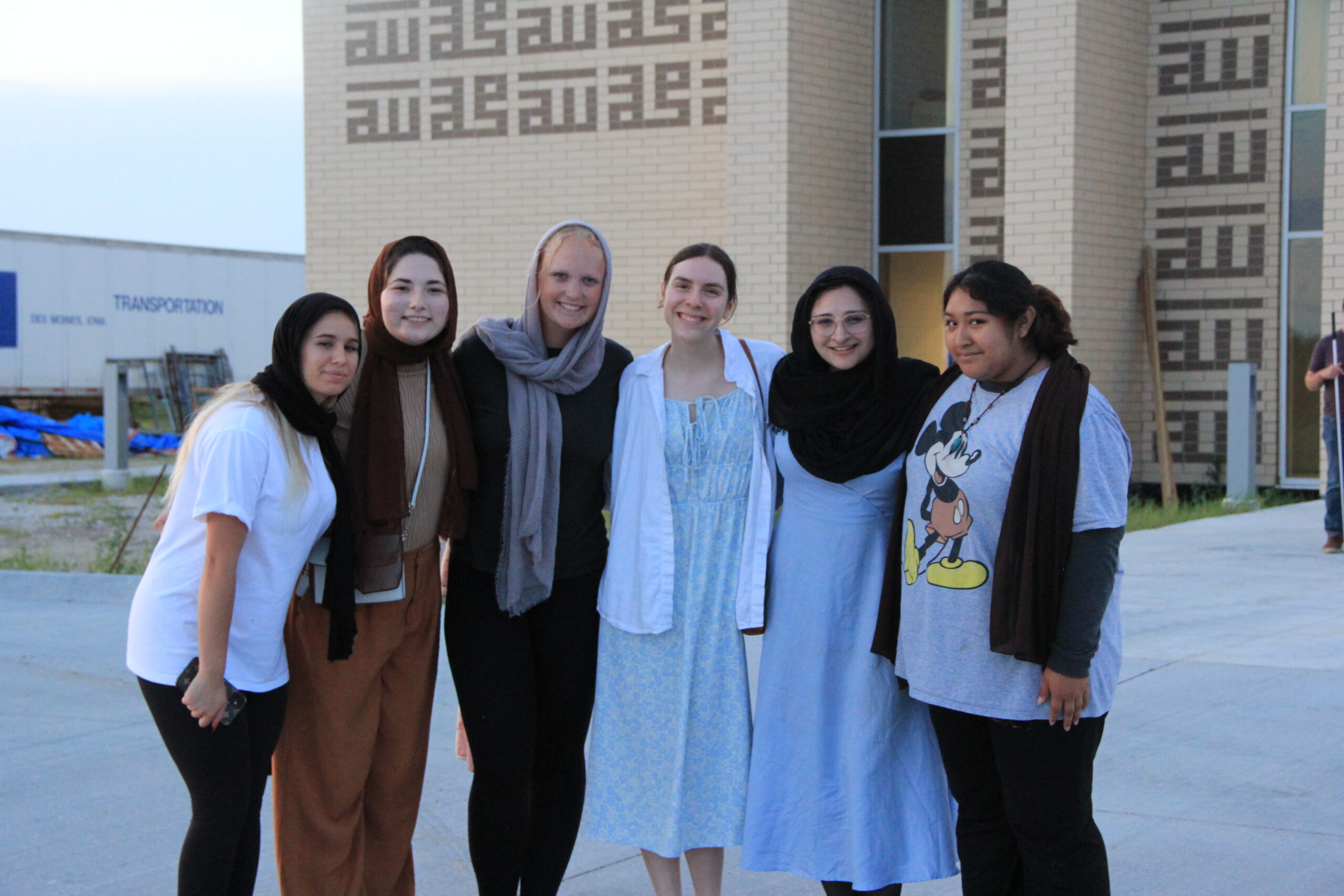
COLLABORATION IS IN OUR DNA
DMARC could never do the work of feeding so many people without the support of nearly 200 faith communities of many, diverse faith communities. Often times this work starts with building understanding, trust, and relationships between those practicing different faith traditions than your own. The biggest examples of this work are the ongoing “Meet My Religious Neighbor” series and the Iowa Interfaith Youth Leadership Camp.
“Meet My Religious Neighbor” events are hosted at different sites throughout the year and participants spend an evening learning and celebrating a specific cultural and religious tradition. “Our interfaith work is about building relationships. It’s about learning to get to know our neighbors,” said Trone Garriott. “Oftentimes folks will drive down the street and not realize they are passing a mosque, a Buddhist temple, a religious community. We create opportunities for folks to go visit those communities and meet their neighbors.”
Perhaps one of the best examples of this work in action is the Iowa Interfaith Youth Leadership Camp. This partnership with the Comparison Project at Drake University celebrated it’s seventh year this summer. With over 100 current alums, the camp has grown into a transformative experience for high school and incoming Drake University students year after year. Over the course of five days, the cohort of 20 students get out of their comfort zone while visiting religious communities across the metro for worship services, meals and conversations and build relationships with their peers – many of whom came from a different city, background, or faith tradition than their own.
Students create short digital storytelling video projects that share insight and examples from their own personal faith journey and are a chance to tell their own story of understanding on the big screen.
“It’s a great opportunity to reflect on ‘what do I believe? What are my values? What is important to me?’ And how can I be inspired by how my neighbors live out their own traditions and faith values,” said Trone Garriott.
MAKING THE WORK “EASY”
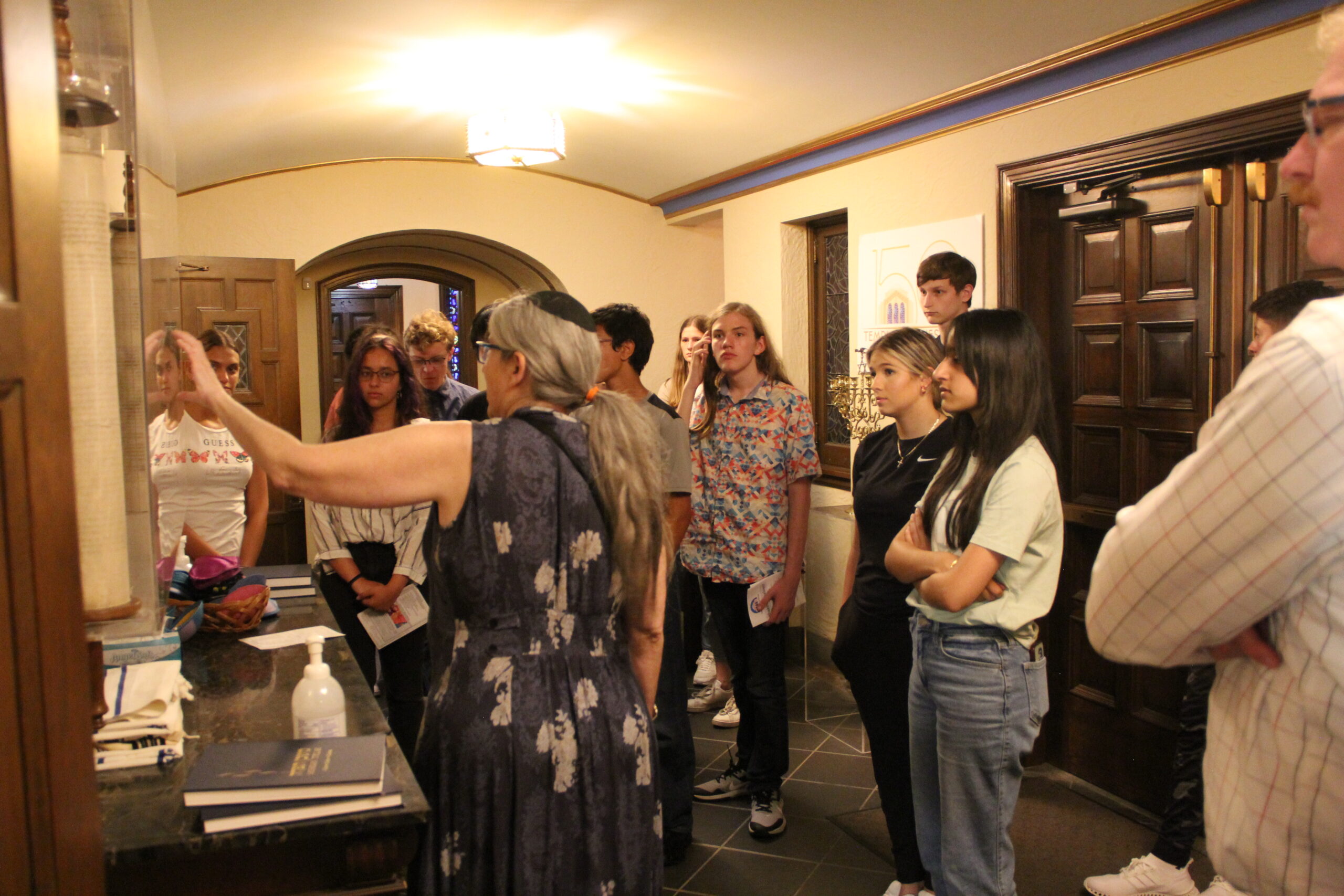
Telling the story of food insecurity through what is going on in your own backyard has set DMARC apart for faith partners like St. Francis of Assisi Catholic Church.
Randy Jensen is a member of the St. Francis Pastoral Council and has served on the DMARC board of directors. When trying to ramp up fundraising within his parish community Randy looked at the strength in numbers that was possible with a larger congregation and decided ‘we can be doing more than just collecting jars of peanut butter’.
Travis and others have been telling the ongoing story of food insecurity by sharing data about what people are experiencing in their neighborhood and keeping the focus on the larger impact DMARC’s purchasing power as a warehouse provides. So far this year the parish community has now raised over $22,278 of support for the DMARC Food Pantry Network and Travis encourages other Faith Partners to consider how they can learn from their success.
“The story of the need is so easy to convey to the parishioners because you are already feeding it to us,” said Travis. “ The DMARC voice is loud, clear and present.”

